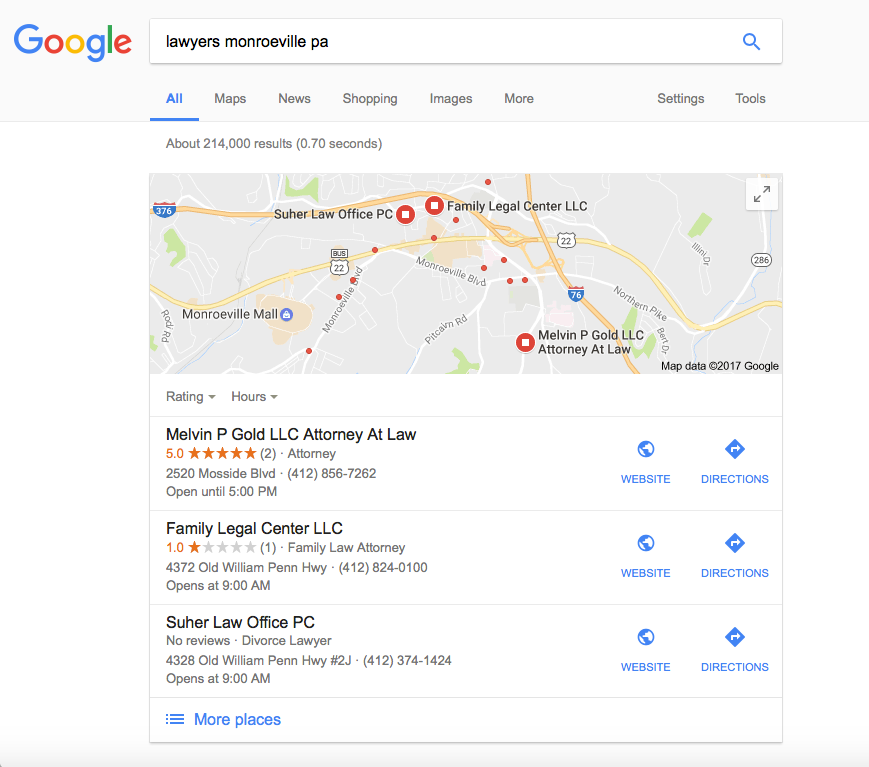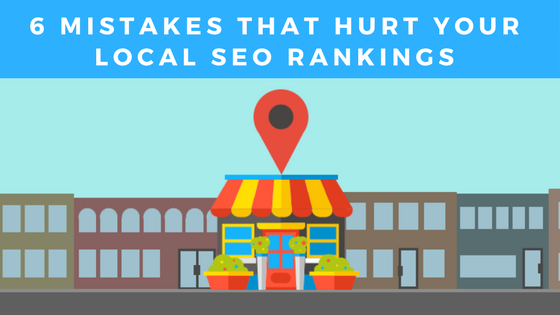It’s no secret that when it comes to searching for a new business or local service in your area, many people rely on online reviews to determine which company to choose. Google has taken consumer reviews one step further by using them to assign businesses a star rating, which customers can quickly and easily glance at to determine the quality of a business and the experience previous consumers have had.
Recently, however, I noticed Google made some changes in how they determine star ratings, and these changes could potentially impact your business — for better or worse. It’s important to take notice of the changes so that the online reputation of your local business doesn’t suffer in the aftermath.
Changes Made In Google Star Ratings
Google is now awarding stars for as little as one review that is received from a businesses Google My Business listing. The policy previously required a business to have a minimum of five reviews before a star rating would be shown. If only one or two customers have left you a review… Your businesses rating is based on those one or two reviews and it is what all your future customers and clients will glance at in the future.
Google uses this five star rating scale to rank businesses based on performance and customer experience. Consumers are given the opportunity to leave a business review, which includes choosing a grade from one star (poor performance) to five stars (excellent service). Google uses an algorithm to average the reviews together to determine an overall star rating.
In addition to reducing the number of reviews required to determine a star rating average, the mathematical equation Google uses to calculate the averages has also changed. Previously, Google used the Bayesian average, which looked at the overall data set for all businesses when determining an average and which also gave five star reviews more weight than others. They’ll now be using the arithmetic way to calculate an average (that most of us were taught in grade school).
Why The Google Star Rating Changes Matter for Your Business
Customer reviews in general, and this includes star ratings, are extremely important for a businesses long term success. According to Invespcro, “90% of consumers read online reviews before visiting a business and 88% of consumers trust online reviews as much as personal recommendations.” This means that all reviews impact your business, whether they are good, bad, or nonexistent. Thanks to Google’s new policy for star ratings, customer reviews are about to become much more prominent.
With the recent changes, if a customer leaves a review (positive or negative) for a business and it’s the only review listed, that’s going to essentially determine the business’s ENTIRE rating until someone else decides to write a review. This could be good or bad, depending on the review that is left.
Simply put… if someone leaves you a bad review then you’re going to end up with a poor star rating, and this could seriously impact a customer’s decision to use your business and end up going with a competitor instead.
On the plus side, if you only have one or two reviews and they’re both positive, then Google will give you a good star rating (as you can see in the screenshot below). This should encourage people to check out your company.
Example of Google’s Drop Of Star Ratings Below:

In the image screen shot above you will see that the first lawyer has 2 reviews (at 5 star rating), second lawyer has 1 (at 1 star rating), and third has no reviews. These changes can really impact your business in a positive or negative way with even as little as one or two reviews. While business owners can’t control what kind of reviews customers leave; they can only control their products, customer service and experience!
So what’s the best way to adapt to these changes and secure the online reputation of your local business? Encourage your customers to leave positive 5 star reviews!
The more business reviews you have, the less likely one bad one is to hurt the image and reputation of your company.
Ways To Encourage Your Customers To Leave Their Feedback
1. Don’t Be Afraid to Ask for Reviews
One of the easiest ways to get reviews is to simply ask your customers to write one after they’ve purchased something (product or service) or otherwise interacted with your business in some way. Customers generally know how important reviews are (after all, they probably read some when they decided to use your company) and as long as their experience was a positive one, most likely they’ll be happy to provide some feedback in return.
However, this is something you want to do and ask of them right away. If you wait too long the customer may become hesitant, and their memory of the actually service and experience won’t be as clear so they remember and could leave out some vital details that could have otherwise benefited your company!
2. Make Reviews Easy
While most customers will be happy to provide feedback, they’re not going to jump through hoops to do it. (The only customers that will jump through hoops to leave a review are the ones who’ve had a negative experience.) Before you ask a customer to leave a review, make sure you’ve simplified the process as much as possible.
For example, provide a direct link to whatever site you’d like them to leave the review on. Provide these links on your website and blog as well so it’s easy for them. If you’re contacting a customer directly, make sure you give them the link along with clear directions on what to do!
3. Send a Follow-up Email After a Purchase
Another great way to solicit reviews is to send out a follow up email after a customer has made a purchase. Ask them if they’re satisfied with the product and with their experience as a whole, and let them know you’re open to suggestions for improvement. Consider sending the email about a week after they’ve received their product; most likely they’re still excited about the purchase, and if they’re happy overall they’ll be more willing to go online and leave a review.
Following up is also a good way to build solid customer relationships; customers will appreciate that you’ve taken the time to make sure they’re happy, and in turn, they’ll be more likely to take the time to leave you a review. Just remember to provide a link to the site where you’d like them to leave the review!
4. Reward Those Who Review
If you’re still struggling to get enough reviews to build a solid star rating, consider providing incentives for those who leave feedback. This isn’t a long-term strategy as it tends to cost a good amount, but it works well if you’re trying to build momentum and customer loyalty. Consider creating a giveaway where everyone who leaves a review in a specific time period (like a month) will be entered automatically. You could also give away a discount code or coupon for the first five people who leave a review, etc. Just be clear that you’re asking people to provide a review, not necessarily a good one.
5. Respond to Negative Reviews
While you may be tempted to delete any bad reviews, in the long run, this is not a good idea. People aren’t stupid, and they’re likely to mistrust a business that has a large number of only positive reviews. No matter how good you are at your job, and how amazing your product is, there’s always going to be someone out there who isn’t happy — but that’s OK! A few bad reviews aren’t the end of the world, especially if you know how to handle them. The most important thing you can do when you see a negative review is to respond to it.
Acknowledge the customer’s problem, apologize if there was any wrongdoing on your part, and work to pacify the customer. Not only will that person appreciate you taking the time to address their issue, other customers will also see that you’ve responded to the review and are working to solve the problem. This will go a long way in building customer loyalty and relationships, and other customers will also be more confident when leaving a review because they’ll see it’s pretty likely it will get published (even when it’s bad).
Conclusion
Have you noticed any changes in your Google star rating? How do you go about encouraging customers to leave reviews? Leave us your comments and feedback below!
P.S. If you are looking for help on the online reputation management of your local business and would like to hire someone to handle this for your business, contact us today for a complimentary consultation!



